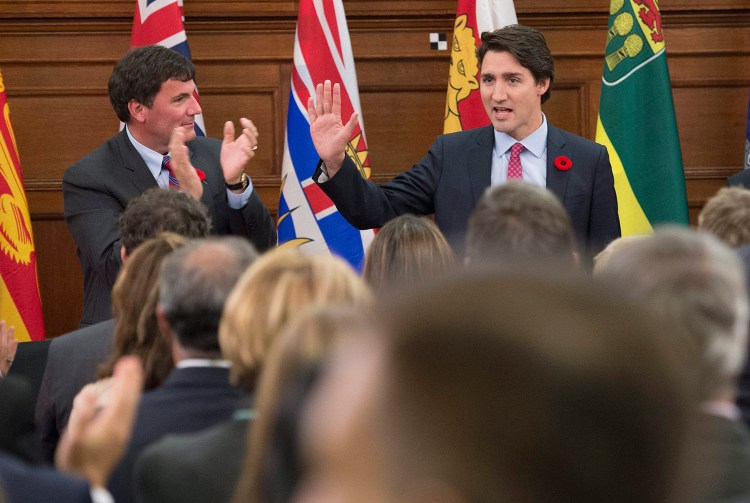After nearly a decade of government interference and restrictions, Canadian government scientists are free to speak to journalists.
Less than 48 hours after being sworn into office, Prime Minister Justin Trudeau’s Liberal government reversed its Conservative predecessor’s controversial policies restricting scientists’ contacts with the media, particularly about research that touched on climate change.
“Our government values science and will treat scientists with respect. That is why government scientists and experts will be able to speak freely about their work to the media and the public,” Navdeep Bains, the new federal minister of innovation, science, and economic development, announced in a statement Friday. “We are working to make government science fully available to the public and will ensure that scientific analyses are considered in decision making.”
While researching a six-part series on climate change in the Gulf of Maine this summer and fall, the Portland Press Herald/Maine Sunday Telegram was repeatedly blocked from speaking to Department of Fisheries and Oceans scientists by communications officers based in Halifax. Access to some scientists was denied altogether, while direct contacts with others were denied in favor of email communications mediated by communications officials.
The change has already been implemented at the Department of Fisheries and Oceans’ primary research institution in the Maritimes, CBC-Nova Scotia reported Friday afternoon. Scientists at the Bedford Institute of Oceangraphy outside Halifax are now allowed to speak openly to reporters, that institution’s regional director for science, Alain Vezina, told the CBC by email.
The department’s assistant deputy minister for science, Trevor Swerdfager, confirmed the change in policy had come from his office in a Nov. 5 conference call with his six regional science directors, the Canadian news site National Observer has reported.
The change gives DFO scientists the same freedom to speak about their research as their U.S counterparts at the National Marine Fisheries Service, and marks an abrupt change from the restrictive policies of former Prime Minister Stephen Harper’s Conservatives.
After taking power in 2006, Harper’s government prevented government scientists from speaking to journalists about a wide range of topics, including the Arctic’s ozone hole, regional snowfall patterns in Ontario, the decline of sockeye salmon populations and a study several of them had published in the journal Nature on a flood that occurred 13,000 years ago in northern Canada. Previously, DFO scientists were easily accessible to journalists, even those critical of federal fisheries policy during the politically sensitive collapse of the overfished cod stocks in the Grand Banks.
Critics of the previous policies are pleased with the development.
“It’s certainly good news,” Jeffrey Hutchings, a professor of biology at Dalhousie University in Halifax, told the Press Herald on Monday. “The extent to which things have changed will soon be tested by journalists.”
C. Scott Findlay, a University of Ottawa biologist and co-founder of Evidence for Democracy, a group of scientists that have protested the restrictive policies, concurred. “The fact we have the statement from Mr. Bains and we have the same information apparently being communicated to line departments I think is encouraging,” he said.
Communications officials at Department of Fisheries and Oceans headquarters in Ottawa declined to comment on the policy changes.
Send questions/comments to the editors.



Success. Please wait for the page to reload. If the page does not reload within 5 seconds, please refresh the page.
Enter your email and password to access comments.
Hi, to comment on stories you must . This profile is in addition to your subscription and website login.
Already have a commenting profile? .
Invalid username/password.
Please check your email to confirm and complete your registration.
Only subscribers are eligible to post comments. Please subscribe or login first for digital access. Here’s why.
Use the form below to reset your password. When you've submitted your account email, we will send an email with a reset code.